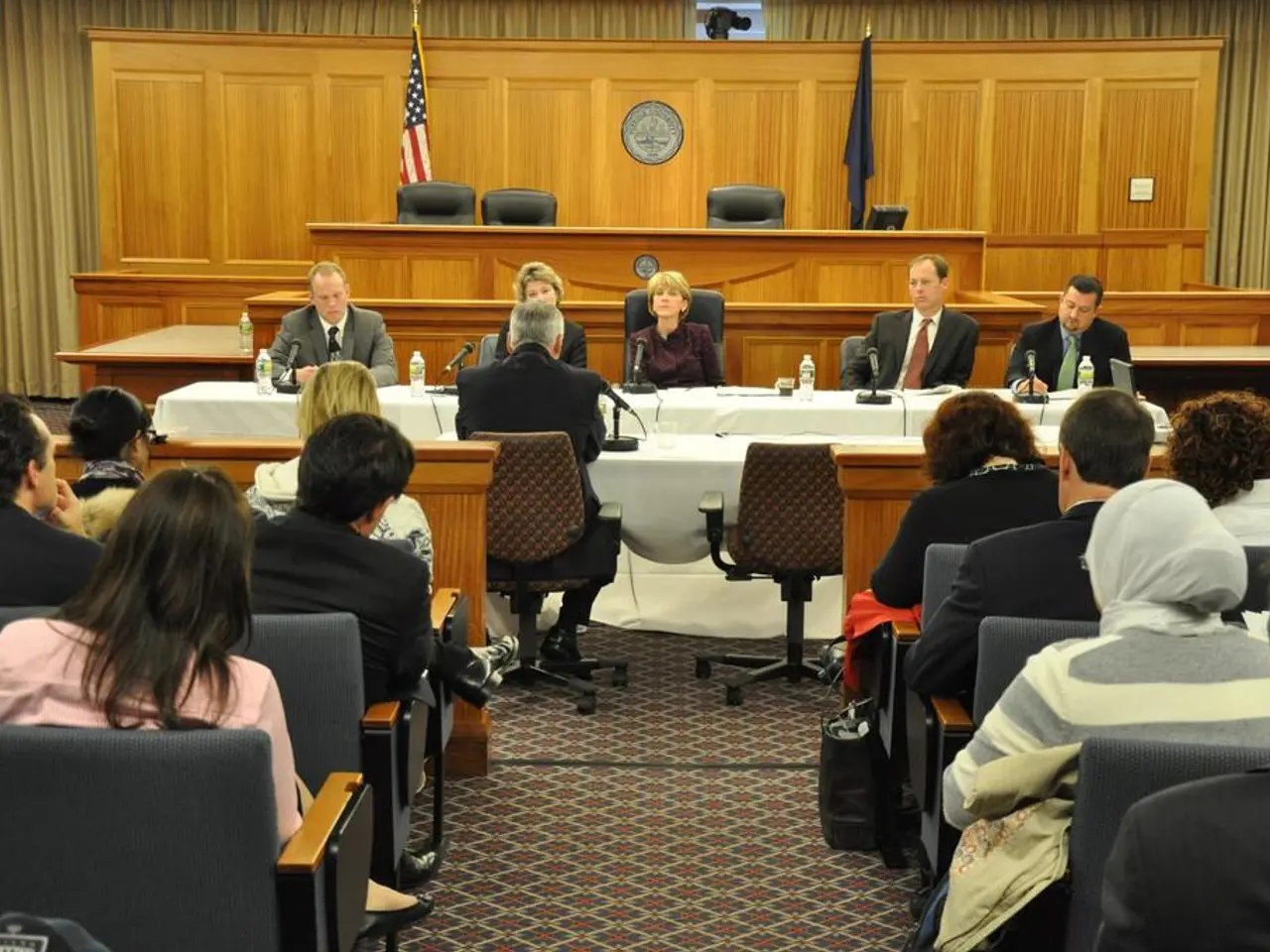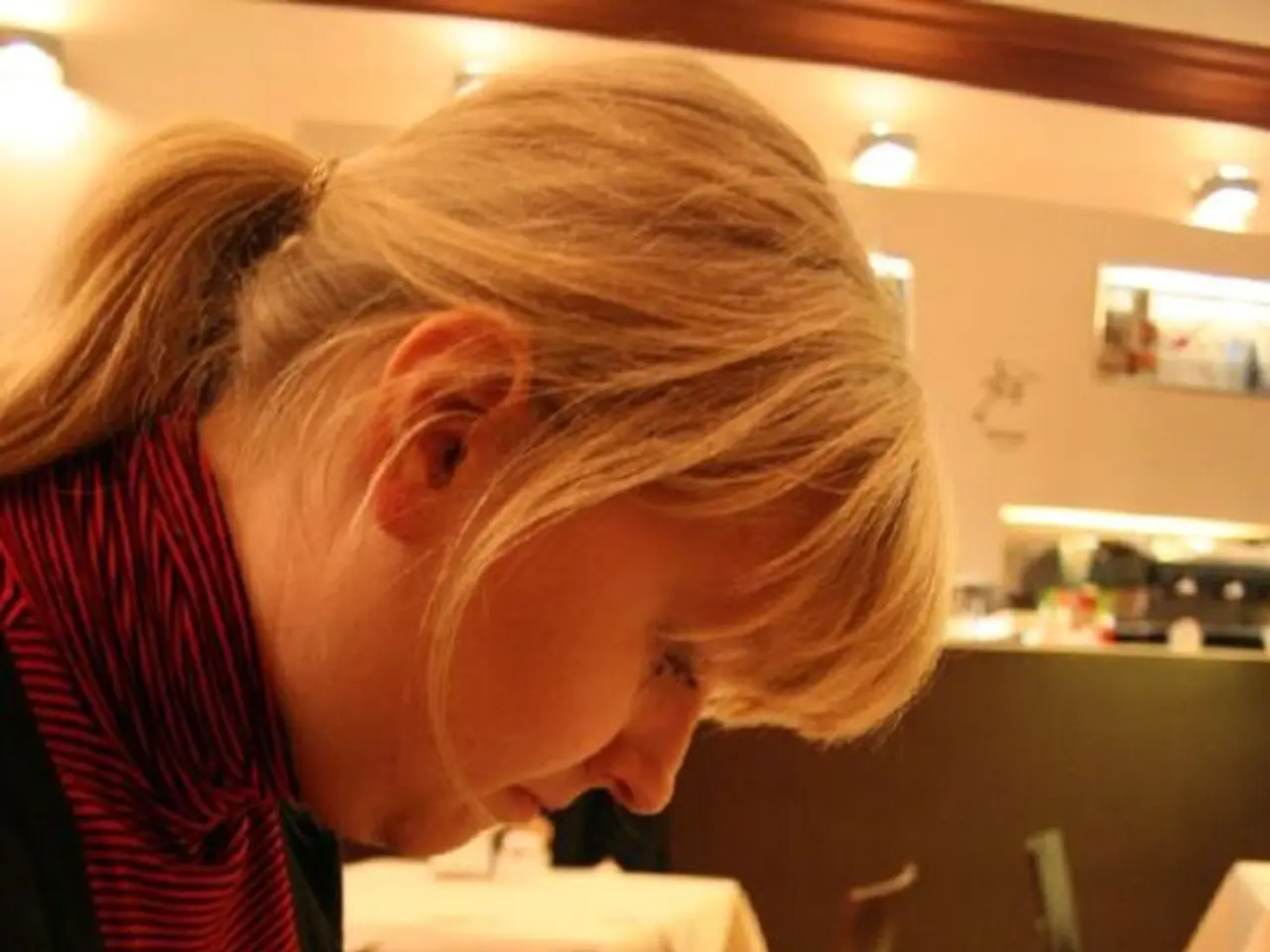Regional political spheres echo with disputes surrounding the selection of judges - Contention Surrounding Judge Appointments Influences State Governance
In a divisive turn of events, the nomination of law professor Frauke Brosius-Gersdorf, proposed by the Social Democratic Party (SPD), for a position on Germany's Federal Constitutional Court has sparked a heated dispute between the ruling coalition parties.
The controversy revolves around Brosius-Gersdorf's stances on issues such as abortion and mandatory COVID-19 vaccinations, as well as allegations of plagiarism that have surfaced against her[1][2]. These concerns have led the Christian Democratic Union (CDU) and Christian Social Union (CSU) to withdraw their support for her nomination, and to call for the vote on her nomination to be removed from the agenda[1][2].
CDU state leader Daniel Peters has been at the forefront of the criticism, questioning Brosius-Gersdorf's suitability for the position, citing her liberal stance on abortion and her past positions "of a left-wing activist"[3]. Peters has also raised concerns from church circles about her views on abortion[4].
Julian Barlen, general secretary of the state SPD, has criticized the CDU's behaviour during the election of constitutional judges as a "low point"[5]. He urges the Union to adhere to political responsibility and engage in respectful democratic dealings[6]. Barlen also emphasizes that citizens expect solutions, not populist campaigns[7].
The dispute has caused a postponement of the vote for new judges to Germany's Constitutional Court, reflecting deepening rifts within the coalition government under Chancellor Friedrich Merz[8][9]. The situation underscores the fragility of the coalition and the challenges of navigating contentious political issues in Germany's federal politics.
The specific role of Mecklenburg-Vorpommern and Schwerin in this dispute is not highlighted in the available information. However, as Brosius-Gersdorf is based in Rostock, which is part of Mecklenburg-Vorpommern, her local connections might be relevant in broader discussions about her nomination. Nonetheless, the primary focus of the dispute remains at the national level, involving the federal coalition government.
CSU leader Markus Söder has also suggested that the SPD replace the controversial candidate Brosius-Gersdorf[10]. Peters and Söder both believe it would be best for the SPD to find a new candidate for the position on the Federal Constitutional Court[11][12].
As the dispute continues, the coalition government under Chancellor Merz faces mounting pressure to find a resolution. The election of new constitutional judges is crucial for the proper functioning of the German legal system, and the ongoing deadlock threatens to undermine the rule of law, as warned by Barlen[13]. The situation underscores the importance of upholding political responsibility and respectful democratic dealings in the face of contentious political issues.
- The ongoing dispute over Brosius-Gersdorf's nomination for the Federal Constitutional Court in Germany extends to the EU level, as the policy-and-legislation implications of her nomination could potentially affect vocational training policies within EC countries, given her known stances on certain issues.
- The ongoing political wrangle over Brosius-Gersdorf's nomination in Germany not only draws attention to the national level of political news but also demands scrutiny in the context of general news, with the broader implications for vocational training and policy-making having potential long-term effects within the country and beyond.








